A note from the Interim Executive Director for 2019
By: Louise Gallagher, Interim Executive Director
A new year, a new look to the future. One question we are asking at Inn from the Cold to all of our staff, supporters and to the entire community is, ‘What will you do to make a difference in 2019?’. This year our organization-wide resolution is to keep the home in the sights of all vulnerable families who find themselves needing care. In December we asked you to ‘Give the Gift of Home’, to homeless children and families, we asked you to do that because a home is something that is not just a basic human need, it is a place that holds special meaning to each of us.
Before homelessness hits there is home. A place, no matter how simple or sparse, where family gathers. Where meals are prepared and shared. Where children know they belong.
And then crisis hits. It can come suddenly, wrapped up in a job loss, marriage breakdown, an out of the blue crisis that sweeps away any meager resources a family has accumulated. Or, it can simmer, an ember that slowly becomes a fire that burns away already delicate supports leaving the family exposed to the stark reality of no place to call home.
In his bestselling book, 7 Habits of Highly Effective People, author Stephen R. Covey writes, “In the space between stimulus (what happens) and how we respond, lies our freedom to choose. […] We may have limited choices but we can always choose.”
For families living in poverty, the choices are often limited. Food on the table. Rent at the end of the month. Gas. Electricity. More month than money earned.
When the choice becomes narrowed to the simple math of, rent due equals no money to pay rent, it can all add up to eviction and the inevitability of homelessness.
Before a family reaches the doors of a family emergency shelter, there is a moment of choice. A moment for a different outcome to be crafted.
Often, that moment of choice is found in a phone call to the shelter. “Can we come?” a desperate parent asks. “You are our last resort.” Unfortunately, the answer at the emergency shelter is inevitable, the answer is a yes.
But luckily, there is another way.
A family emergency shelter should be a place of last resort. It is the abosulte last place children should come. Not because the place is bad. But rather, because homelessness, by its very nature is traumatic.
Brain science clearly demonstrates the impact of trauma on a child’s developing mind. Loss of the familiar, coming to a strange place filled with strangers, living in a communal setting where parents’ stress levels climb and routines are interrupted creates high levels of toxic stress in a young child that can impact them for life. And, as the evidence shows, can remain a recurring theme of homelessness that continually appears in adulthood.
What if… we were able to stop homelessness before it begins? What if… when a parent calls asking for shelter the answer isn’t, “Come on down,” but rather, “What can you tell me about your specific housing situation right now and what you need to have a safe place to stay tonight? It might mean you come to shelter tonight but first, we want to explore all options as we’d like to avoid you and your children having to be in a shelter if at all possible.”
And what if… once they’ve described their current situation the response was, “Let’s explore alternatives so we can help you find a more stable solution that doesn’t have to include coming to the shelter.”
This is the ground zero of a Housing Focused Shelter, this is our 2019 focus. The acknowledgment that shelter is not the first answer when housing crisis hits and it’s also not the place to go to for those who have run out of options. It is, however, the place of the first choice for those who want a housing solution, who want to find a solution to homelessness and whatever crisis led them to homelessness, to begin with.
According to lain De Jong, a housing first advocate and principle of OrgCode, a housing-focused shelter is focused on resolving a family’s homelessness first. Meeting basic needs is secondary because the expectation is that people will be working on permanent housing while in the shelter with the goal of limiting the length of stay in a shelter as much as possible.
This requires clear communication of the shelter’s expectations of the ‘housing first/basic needs second’ focus prior to intake into a shelter. A housing focused shelter continually reinforces its housing orientation to prevent the use of shelter as an unpaid hostel and to empower families to undertake resolution of their housing crisis through an active search for housing.
In a housing-focused shelter, emergency shelter is short-term. It is never a long-term solution, regardless of the family’s circumstances. To be clear, there is no fear of being asked to leave the shelter as long as the head of household is actively engaged throughout the day in pursuing housing options.
A housing focused shelter requires a mind-shift in how we view and work with the families who come to a shelter. Often when a family arrives, their mental and physical health is assessed with issues of substance use, employment, counseling, life skills training, cultural reconnection, and other seemingly pressing issues becoming the focal point for family well-being, not housing.
A housing focused shelter is focused exclusively on housing. The goal is always to work with family members, particularly those who are in a shelter for the first time, on the development and implementation of their individualized housing plan, not through case management, but through clearly defined expectations of the head of household’s role in pursuing housing.
A big shift in a housing-focused shelter is that all staff become housing staff, actively engaged with those utilizing the shelter in doing housing work. Housing-focused work needs to drive the engagement of the staff with the client and not be an afterthought.[1]
Homelessness is a traumatic event. For children, the longer a family experiences life in a shelter, the greater the detrimental impact on behavior and cognitive development. A shelter is a shelter. It is not a health care facility, rehab or counselling center, or as Ian de Jong says, “increasingly we see this as therapeutic incarceration – holding people in shelter longer through program involvement in the hopes of changing who they are so that they are rehabilitated as a person and in a position to accept the responsibilities of housing.”
Housing focused shelter is imperative in ending child and family homelessness. It begins with the first conversation, whether on the phone or at the front door, that sets the stage for what a family can expect when engaging with an emergency shelter – the acknowledgment that a shelter is not a destination nor a solution for a family’s housing crisis. A shelter is part of the process of becoming housed. Part of that process is the clear expectation that the head of the household for each family is actively engaged in the development and implementation of a Housing Plan from the moment they enter shelter until they leave to go home to where their children belong.
As we transition this year, we are confident in the postive change we are about to see. We believe that a dream this large cannot be done by us alone. A dream this big takes the whole family homeless-serving sector, the entire homeless-serving sector, and the entire community. Together, we are capable of stopping child and family homelessness in its tracks and becoming the city that put an end to child and family homelessness. We cannot do this without you!
Get involved with Inn from the Cold this year, and make this a year you will never forget. Learn more here.
[1] Housing Focused Sheltering; OrgCode Consulting, Inc. http://orgcode.com/learn



















